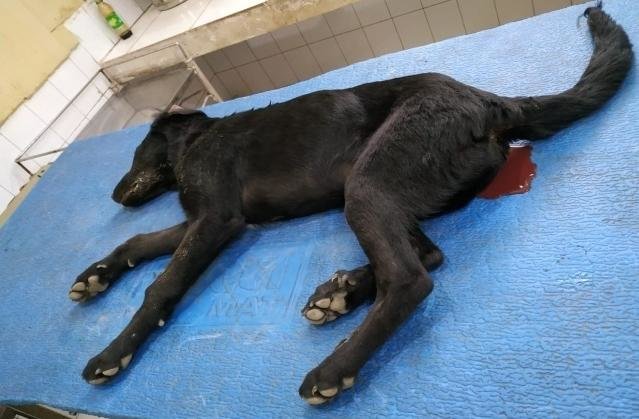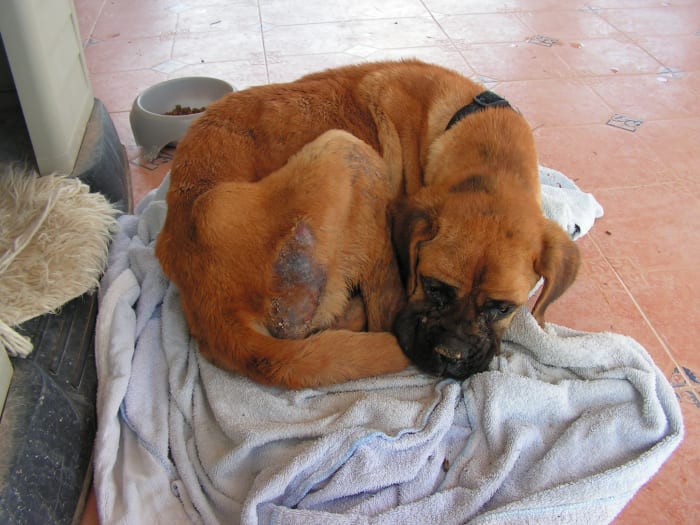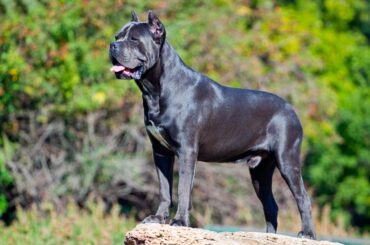Diarrhea is a change in the frequency and consistency of stools (feces). It’s usually not serious, but it can cause dehydration and electrolyte imbalances.. It can be caused by various things, such as food poisoning, stomach flu, and stress. It can also be resulted from mal-functioning of the gastrointestinal tract. It is one of the most common signs of illness. In addition to diarrhea, flatulence often occurs with diarrhea. This condition may or may not accompany vomiting, loss of appetite, and lethargy.
Diarrhea can be a symptom of an illness, which can lead to weight loss and dehydration. To avoid serious health problems, it’s important to pay attention to your dog’s symptoms when he is sick. A dog will often hide his illness in order to act normal so it is up to you to notice when something is wrong.
This is when you have loose stool, or watery stool more often than normal. It may also be accompanied by abdominal cramps and pain in the lower abdomen. This may arise from the large intestine or colon, characterized by increased frequency, small volumes of stool, straining to defecate, or diarrhea arising from the small intestine.
This is a common condition seen in dogs. It can be mild and self-limiting or more severe and dangerous. In most cases, this disease goes away on its own, but sometimes it may indicate a serious health problem that needs to be addressed by a veterinarian.
Table of Contents
Causes of Diarrhea in Dog
There are several causes of diarrhea. One is dietary indiscretion, which is eating something the dog shouldn’t eat, like chocolate or grapes. Other causes include stress induced (which can be caused by things like obedience training), chocolate toxicity, overeating—especially in puppies—and overfeeding with fat. Pancreatitis can also be caused by inflammatory diseases others are; Neoplasia: lymphosarcoma, focal neoplasia, Metabolic, Trauma, Infectious, Autoimmune.

High-sugar and salt treats can cause diarrhea in dogs. This may occur because the food is being digested too quickly, pulling water into the gastrointestinal tract as it is digested. In addition, dogs are unable to digest large amounts of fat or excessive amounts of fat that are not what they normally eat.
Pancreatitis can be a serious condition in dogs. This disease causes vomiting and diarrhea, among other symptoms. In severe cases, pancreatitis can potentially even be fatal. Vomit that contains blood will look dark red to black. Unlike blood in the stool, any amount of blood in vomit should warrant a vet visit, as it is an indicator for pancreatitis
Types of Diarrhea
Acute Type: In some cases, this disease can be cleared up without too much intervention from you. Acute onset diarrhea will often resolve on its own within 48 hours. If your pet is experiencing this for more than two days, or if there is blood in the stool, you should take your dog to the vet.

Chronic Type: Chronic infection in dogs can be a recurring issue if your pet is on a diet that is upsetting their stomach. This also goes for chronic diarrhea caused by sensitivities to specific foods. If you find that your pet has chronic type, it may take some time for them to recover as they need to return to a healthy weight and have regular bowel movements. This can also lead to weight loss, lethargy and others.
Treatment of Diarrhea
If your dog has diarrhea at home, the best thing to do is feed them a bland diet. Feed simple protein and simple carbohydrates that help heal the GI tract but don’t overwhelm it. In stressful situations, starting a fiber supplement before the event can prevent this disease from happening at all.

Diarrhea can be caused by bacterial infections, dietary changes, stress, parasites and other causes. The treatment that your vet prescribes will depend on their diagnosis or suspected diagnosis. Medications such as antibiotics, metronidazoles etc. are commonly prescribed to treat this in dogs. If the diarrhea is severe, your dog may need to go on a special diet.




